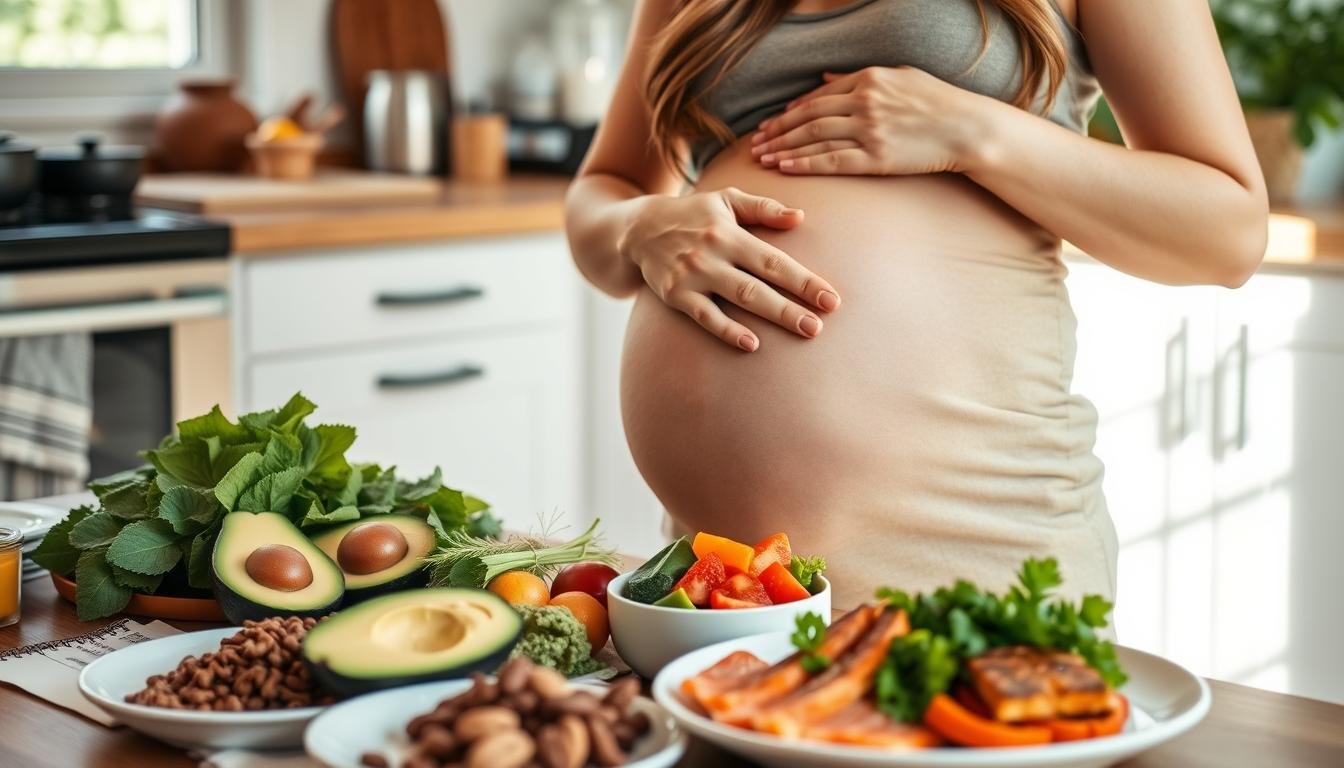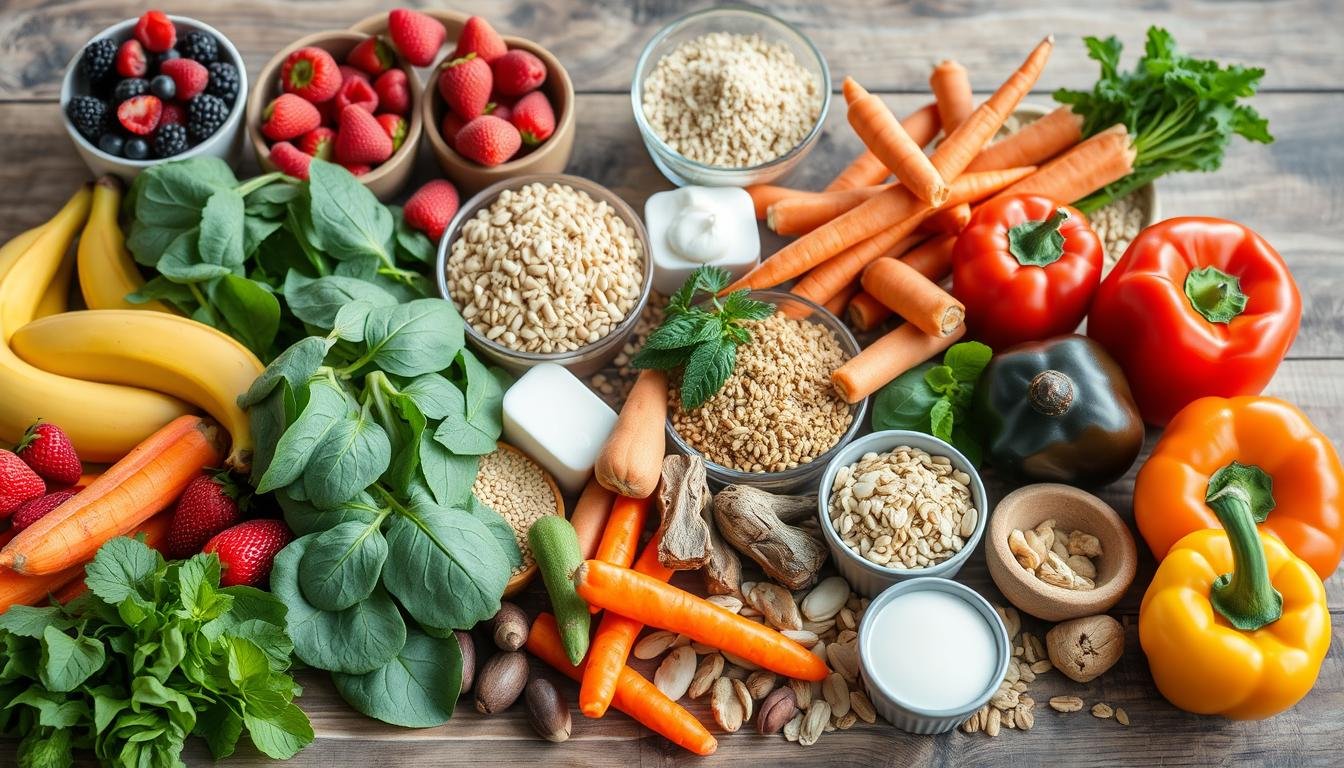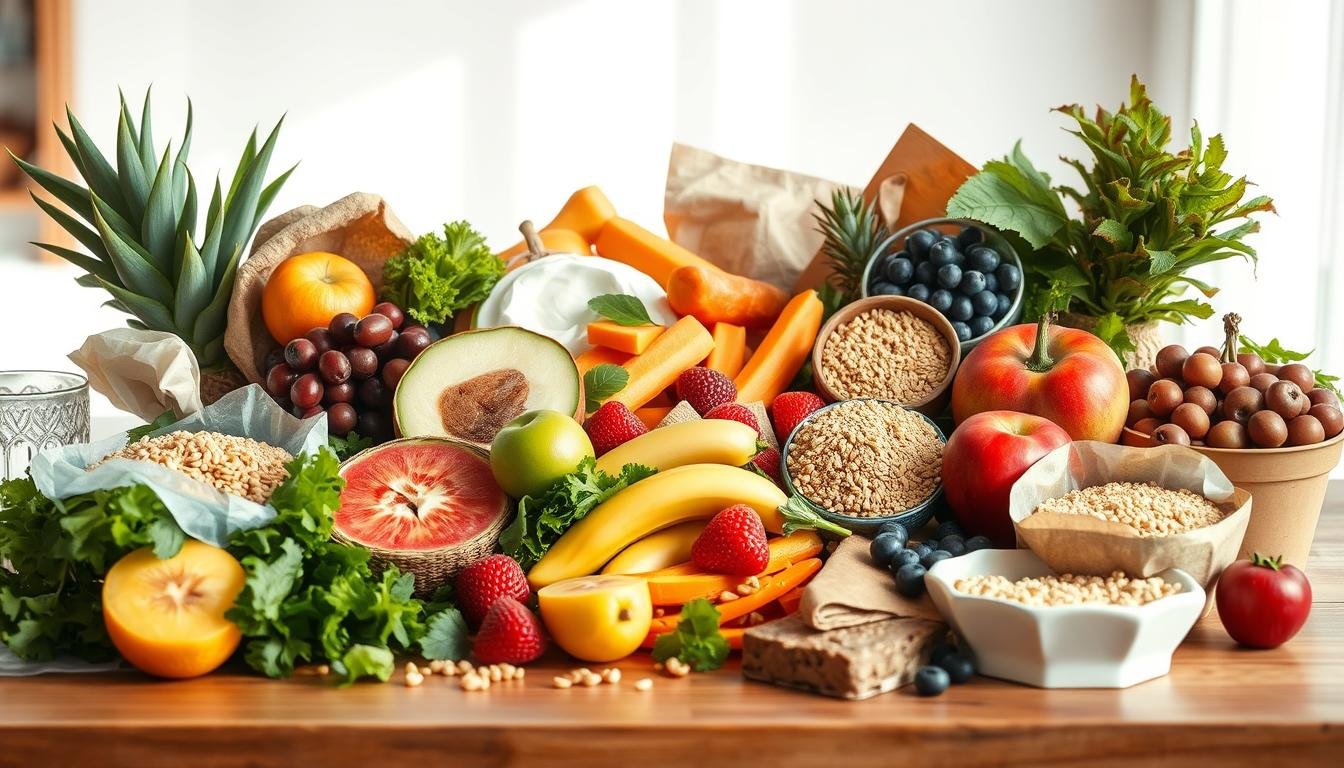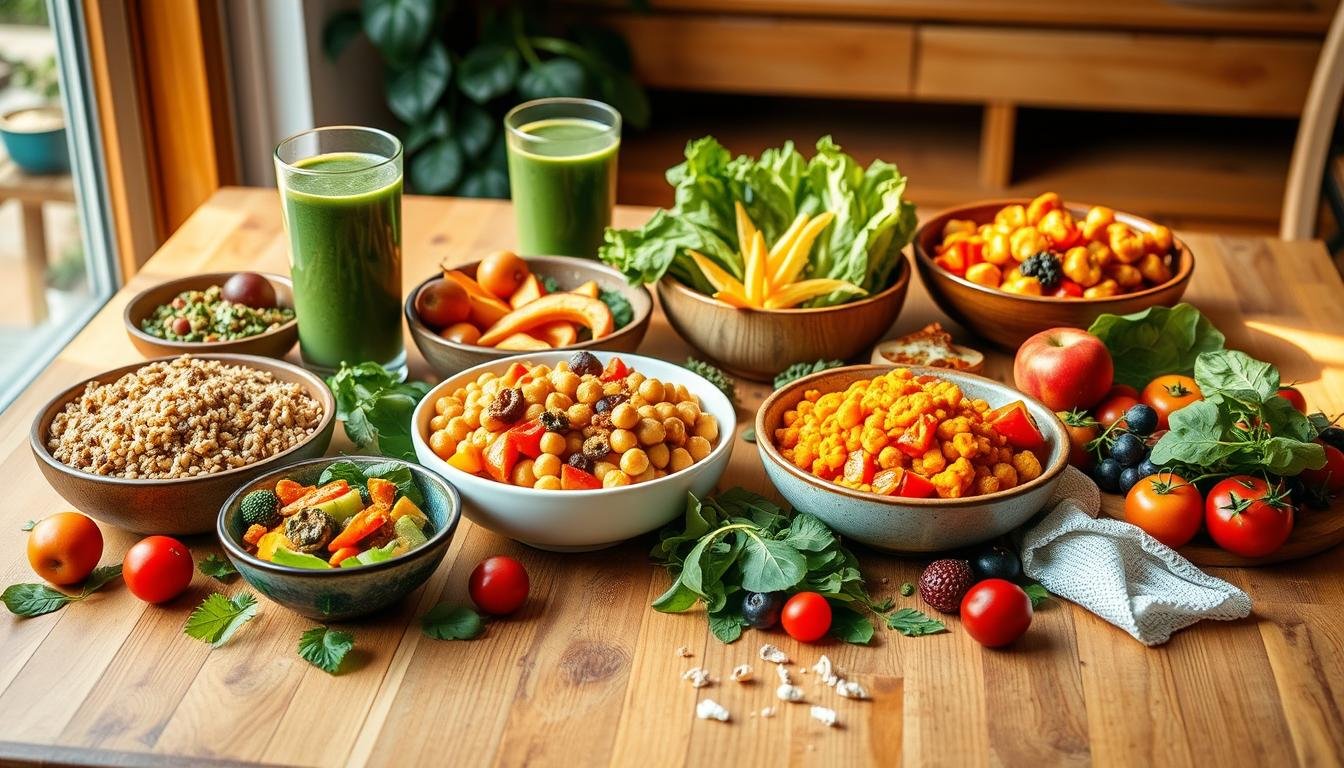Pregnancy brings many changes, and what you eat is more important than ever. The keto diet is known for weight loss, but is it safe during pregnancy? This question is debated by doctors and moms-to-be.
The low-carb diet trend is popular among pregnant women wanting to manage their weight. But, is it safe? We need to look at the risks and benefits carefully.
What you eat affects your baby’s growth, and every meal matters. Just like asparagus benefits your health, a balanced diet is key during pregnancy. But does the keto diet fit the bill? Let’s look at the facts and expert opinions to guide your prenatal nutrition choices.
Understanding the Ketogenic Diet
The ketogenic diet has become more popular, even sparking talks about it during pregnancy. This diet aims to make your body enter a state called ketosis. We’ll look into what ketosis is, how the keto diet works, and its benefits for losing weight.
What is ketosis?
Ketosis is when your body uses fat for energy instead of carbs. It takes a few weeks to get into ketosis naturally. In this state, your liver makes ketones. These ketones are a new fuel for your body and brain.
How does the keto diet work?
The keto diet cuts down on carbs and ups fat intake. This makes your body use fat for energy, helping you lose weight. A keto diet usually has:
- 70-80% fat
- 20-25% protein
- 5-10% carbohydrates
Benefits of ketosis for weight loss
Ketosis has several benefits for losing weight:
| Benefit | Description |
|---|---|
| Appetite suppression | Ketones reduce hunger hormones, making you eat less |
| Increased fat burning | Your body gets better at using fat for energy |
| Improved insulin sensitivity | Less carbs help control blood sugar levels |
Even though the ketogenic diet looks good for weight loss, its effects on fetal development are still being studied. Pregnant women thinking about this diet should talk to their doctor. This ensures they get the right nutrition for themselves and their baby.
Nutritional Needs During Pregnancy
Pregnancy requires specific nutrients for the baby’s growth and the mother’s health. The keto diet is a concern because it limits carbs. This might not give enough nutrients for the baby.
Pregnant women need a diet full of carbs, proteins, and fats. Vitamins and minerals are key for the baby’s development. B vitamins are important for many body functions during pregnancy.
| Vitamin | Function | Food Sources |
|---|---|---|
| Thiamine (B1) | Nerve function, muscle contraction | Whole grains, legumes, nuts |
| Riboflavin (B2) | Energy metabolism, cellular function | Eggs, almonds, spinach |
| Folate (B9) | Cell growth, neural tube development | Leafy greens, beans, citrus fruits |
| Cobalamin (B12) | Red blood cell production, DNA synthesis | Meat, fish, dairy products |
A balanced diet is key for getting all the necessary nutrients. Limiting carbs can make it hard to get important vitamins from fruits, veggies, and whole grains. This could affect the baby’s growth and the mother’s health.
When it comes to the keto diet for pregnant women, a balanced diet is more important. Talk to a healthcare provider to make a diet plan that’s good for both the mother and the baby.
Can You Follow a Keto Diet While Pregnant?
Pregnancy brings unique nutritional challenges, raising questions about keto during pregnancy. Many expectant mothers wonder if they can follow a keto diet while pregnant. This low-carb, high-fat eating plan has gained popularity for weight management, but its safety during pregnancy is debated.
Potential risks of keto during pregnancy
Following a strict keto diet while pregnant may pose risks. The lack of carbohydrates could lead to nutrient deficiencies crucial for fetal development. Ketosis, the metabolic state induced by keto, might affect the baby’s growth. Some studies suggest a link between very low-carb diets and an increased risk of birth defects.
Expert opinions on low-carb gestational diets
Most healthcare professionals advise against extreme low-carb diets during pregnancy. They emphasize the importance of a balanced diet that includes all food groups. Some experts suggest that a moderate low-carb approach may be safe for certain women, but only under close medical supervision.
Alternatives to strict keto for expectant mothers
For pregnant women interested in keto’s benefits, safer alternatives exist. A modified low-carb diet that includes more fruits, vegetables, and whole grains can provide some benefits without the risks. Focusing on nutrient-dense foods and maintaining a balanced diet is key for maternal and fetal health.
| Diet Type | Carb Intake | Safety for Pregnancy |
|---|---|---|
| Strict Keto | 20-50g per day | Not recommended |
| Modified Low-Carb | 100-150g per day | May be suitable with medical supervision |
| Balanced Pregnancy Diet | 175-250g per day | Generally safe and recommended |
Effects of Keto on Fetal Development
The ketogenic diet in pregnancy raises concerns about its impact on fetal development. This diet, low in carbs and high in fat, may help some adults. But its effects on unborn babies are still unknown. Carbs are key for fetal brain growth, and cutting them could affect a baby’s development.
Keto and fetal development need more research. The diet might cause nutrient deficiencies important for growth. For example, folate in leafy greens and fortified grains prevents birth defects. Vitamin B12, found in animal products, is also vital for brain development.
Expectant mothers should think carefully about keto. A balanced diet might be safer. Foods like asparagus, rich in vitamins A, C, and K, could be good choices. Always talk to a healthcare provider before changing your diet during pregnancy for the best results.





